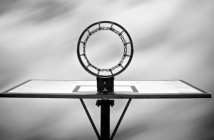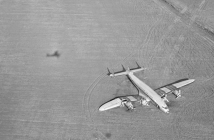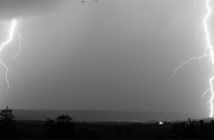From the cockpit of a C-123B, starting in March of 1963, I dropped boys over rice paddies in South Vietnam. The boys jumped but I never saw them fall.
Boys with parachutes strapped to their backs lined up behind me in the cabin. If they ever spoke to me, or to each other, I couldn’t hear them over the engine. The boys fell through blue skies, white skies, black skies dotted with stars—opening their parachutes, floating.
At first, I watched them through the windshield. The boys jogged toward me across the mud, heavy with weapons and supplies. A few joked and laughed as they approached, but most wore expressions of austerity and focus.
Twelve, thirteen, fourteen boys.
On two occasions, before they boarded, boys vomited—one leaning against the fuselage, the other only halfway across the muddy field.
Soon, I started seeing black Xs over boys’ hearts. Not all of them, but one or two per drop.
I began studying maps while the boys approached me, maps I’d already memorized, instead of watching them jog. I started thinking of the boys not as boys, but as the feeling of pressure, warm touch. Their presence in the cabin was like a girl’s fingers clasped around the back of my neck. Sometimes I could even picture the girl—brunette, chubby, long eyelashes—head tilted back, laughing, but doomed.
Once the boys were onboard, I’d fold the maps and put them under my seat. I’d look back at the boys and smile, as if to say, You’re in good hands.
In that moment—the moment when I turned to look at the boys—I would relax my eyes and let everything blur.
It happened once that a boy’s parachute never opened, but I only heard about it much later.
I was targeted by a surface-to-air missile, and all I could think was, What took them so long?
At base, they’d tell me about the boys I’d dropped: boys missing, blown up, or shot; boys who lost it and went on rampages; boys who lost it and became heroes.
The more I tried to not look at the boys, the tighter those fingers clasped around the back of my neck.
One day an enemy fighter flew into my airspace. It got closer, was tailing me, was right on me, was alongside me, was hit.
This had happened once before; I’d radioed for help, had enemy aircraft brought down, a bouquet of flames hanging for a moment in its place.
But this time, when that plane was beside mine, I looked over into its cockpit, and I saw the pilot—a boy, acned, and about to be blown out of the sky—looking back at me as if to say, Can you believe we’re both up here?




